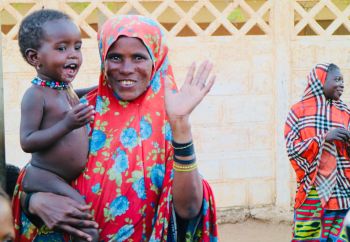SOCIO-CULTURAL DETERMINANTS OF EXCLUSIVE BREASTFEEDING AND INFANT FEEDING PRACTICES IN NIGER
Abstract
Background
Niger has one of the lowest exclusive breastfeeding (EBF) rates in the world. Prelacteal feeding practices may contribute to low EBF rates, but research on the barriers related to EBF in Niger is limited.
Objective
The purpose of this study was to identify socio-cultural determinants for, and barriers to, EBF during an infant’s first 6 months through maternal perspectives in Niamey, the capital of Niger.
Methods
Participants were mothers with children aged 0 to 24 months in Niamey, Niger. Participants completed an interview including a 20-item questionnaire on socio-demographics, breastfeeding support and knowledge, a short food security survey, and a 24-hour diet recall. Infant anthropometric data (height, weight, upper arm circumference) was collected from patient records.
Results
All participants (n=31) breastfed and a majority of the mothers were planning to breastfeed until the child reached 18 months old. No mother among the participants practiced EBF for the recommended 6 months because of the common practice of prelacteal feeding, where solid or liquid foods were introduced before 6 months of age. Most participants stated that they were instructed on how to feed their child by a close relative such as their mother or sister, while health professionals rarely gave such instructions.
Conclusions
Exclusive breastfeeding is not a common practice among mothers in Niamey. Even though many breastfeed their infant for a relatively long duration, the participants disclosed that they often feed their infants solid and liquid foods before they reach the recommended age for complementary feeding, and sometimes within 48 hours after birth. Study results may inform the development of breastfeeding education components in clinics where mothers attend pre and postnatal consultations.

Authors retain all copyrights. In making a submission to World Nutrition, they are certifying that all material is theirs except quotations, as indicated, and that they have obtained permission for any photos, tables, or graphics taken from other publications or websites.




